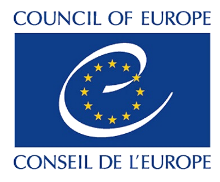Current status
Submitted
Discover more
After a contribution is submitted to BePART Forum, the initiative is marked as “Submitted”; as other partners involved in the initiative submit information from their side, the initiative is marked as “Under review” and goes through the validation process; twice a year, initiatives are validated by the BePART Working Group at the Council of Europe. Successful initiatives are marked as “Validated”. Do you want to learn more – click here
Contributor(s)
First contributor: ALDA – European Association for Local Democracy Local Authority
Summary
Scintilla is a participatory process started in 2019 and aimed at promoting the re-qualification of a neighbourhood of Vicenza (IT), by involving its inhabitants in the decision-making process regarding its future. The project is focused in a highly multi-ethnic neighbourhood located close to the Central Station, facing serious issues related to social integration and illegal trafficking. On the one hand a set of public consultations were implemented with the aim of defining the problems, collecting proposals towards a possible solution, and developing citizens’ sense of ownership and responsibility towards the problem. On the other hand, several local initiatives were organised to improve the life of people living in the neighbourhood in the short-term and create a sense of community (events for children, inter-generational parties involving local businesses, theatre courses, participatory budgeting initiatives, etc.).
These activities have been co-organised by a group of volunteers from the area, the so named Gruppo Scintilla (Spark Group), under the methodological coordination of ALDA – European Association for Democracy Local and of the Pampas association – The Inclusive Garden.
The result of the participatory process carried out by the Scintilla Group is the proposal “The Place to Be – the new forms of work”, encompassing structural and non-structural initiatives to regenerate the neighbourhood, boost its socio-economic fabric, while promoting new and innovative form of job.
Administrative level
Local (Vicenza, Italy)
Year of implementation
2019-ongoing
Policy area(s)
- Local Development and Planning
- Education, culture, and sport
- Youth
- Employment
- Environment
- Public Finances
- Social security/solidarity
- Transport
Further details
/
Sorry, no records were found. Please adjust your search criteria and try again.
Sorry, unable to load the Maps API.
ALDA – European Association for Local Democracy
Civil society organisation
Contact info
/
Tipology of involvement in the initiative
- Initiating (i.e., advocating for and starting the process)
- Organising
- Funding
- Participating with a direct involvement
Pampas – Il giardino inclusivo
Civil society organisation
Contact info
/
Tipology of involvement in the initiative
- Initiating (i.e., advocating for and starting the process)
- Organising
- Funding
- Participating with a direct involvement
Municipality of Vicenza
Public Authority
Contact info
/
Tipology of involvement in the initiative
- Initiating (i.e., advocating for and starting the process
Level of Participation
- Information
- Consultation
- Dialogue
- Partnership
Discover more
By level of participation we refer to the type of involvement in the decision-making process. The levels are identified by the intensity of participation: going from “information” to “consultation” to ” dialogue” to “partnership”. Do you want to learn more – click here
Developed practice(s)
/
Step(s) of the political decision-making process at which the practice was implemented
- Inputs/Incentive ideas for policy
- Agenda Setting of policy
- Drafting of policy
Discover more
There are six different steps of the political decision-making process: agenda setting, drafting of policy, decision-making, implementation of policy, monitoring and reformulation of policy. Each step offer opportunities for CSOs and public authorities to interact. Do you want to learn more – click here
How the initiative was implemented
Situation
Highly multi-ethnic neighbourhood located close to the central station of Vicenza (IT): Lack of social integration; Stigmatisation of migrants; Dominated by neglect and crime: i.e., drug trade and prostitution.
Activities performed
- Establishment of a spark group (10 people) to launch and promote the process
- First public consultation to map the neighbourhood’s challenges and strengths, ideas to be implemented in the short term, fundraising ideas to support the self-organised initiatives
- Creation of small working groups to implement punctual initiatives (parties, workshops)
- Naming of ambassadors to promote the process within their buildings and act multiplier effect
- Large consultations in each building to define the neighbourhood’s challenges and opportunities, it characteristic and define the framework
- Development of a shared vision/solution: “The Place to be” proposal
Tools and mechanisms applied
- World café
- Public consultations
- Open space
Goals of the civil participation initiative
At community level
Neighbourhood re-qualification: implementation of several initiatives with low costs – inhabitants’ skills at disposal; Co-design of a solution and an action plan
From Civil society organisation’s perspective
Increased commitment and active participation of inhabitants (tenants, apartments’ owners, representatives of local institutions, local business sector)
From Public Authority’s Perspective
Development of sense of ownership towards the neighbourhood and the solutions
Results expected prior to the implementation
- Expected results: reduce the negative perception of the area; citizens engagement; urban and social regeneration of the area; improve quality of life; improve infrastructures; sustainable mobility initiatives; create job opportunities.
- Targets: municipality, citizens, shops, NGOs, business working in the area.
Immediate results achieved after implementation
- Short term results: cultural events organized; increased socialization; networking; increased the number of participants into the process; volunteers engaged; improvement strategy designed.
- Targets: municipality, citizens, shops, NGOs, business working in the area.
Long-term impact
- Long term impacts: participation in the urban planning; improvement of infrastructures; increase green areas; implementation of sustainable mobility solutions; create spaces for capacity building, knowledge exchange etc; foster migrants integration process.
- Targets: municipality, citizens, shops, NGOs, business working in the area.
Practice lessons learnt (obstacles and solutions)
| Agency (i.e., political conditions/power structures) | Obstacles | |
| Solutions | ||
| Legislative | Obstacles | |
| Solutions | ||
| Administrative | Obstacles | Municipality engagement |
| Solutions | Keeping local authorities informed; inviting administrative representatives in public events; debate with public challenges | |
| Socio-cultural | Obstacles | Negative perception of the area |
| Solutions | Organize cultural and inclusive events; communication and promotion; good relationship with media | |
| Economic | Obstacles | Low budget |
| Solutions | Fund raising; crowdfunding; applying for public andor private funds | |
| Human capital | Obstacles | Keeping high level of motivation |
| Solutions | Distribution of role and responsibilities; engage people according to their competences and feelings | |
| Other | Obstacles | |
| Solutions |
Further information
/
Self-assessment
The self-assessment presents the opinion of the contributor about on what extent the following principles for Civil Participation have been reflected in the implementation of the initiative/practice/case-study, ranging from 1 (min) to 4 (max) (N/A: not applicable, do not know)
| Openness | 4 |
| Explanation | The council is open to all views and suggestions from its members. |
| Trust | 4 |
| Explanation | We believe that there is mutual trust between the municipality representatives, NGOs and organizations included. The municipality listens to the opinion of all its members. |
| Independence | 4 |
| Explanation | We have no demands on the NGOs and organizations in the council. They are independent and have their own free will. They are welcome to apply for participation in the council if they work with integration and segregation issues in the municipality. |
| Participation | 3 |
| Explanation | The NGOs and organizations participate on many levels. The municipality is now in the process of starting to fund projects implemented by members of the council. The municipality will have some focus areas that the NGOs and organizations must work from. But the plan is to have a dialogue with the NGOs and organization to discuss their ideas and how they can participate in the municipalities work to improve integration and prevent segregation. |
| Transparency | 4 |
| Explanation | We have rules of procedure that we work according to. These are given to the NGOs and organizations when they apply to participate in the council. To participate in the council, the NGOs and organizations must write a formal application letter where they describe how their work complies with the aims of the council. |
| Accessibility | 4 |
| Explanation | That is done and if they have any questions, they can contact the representatives of the municipality. |
| Non-discrimination | 3 |
| Explanation | NGOs and organizations must apply to participate in the council and to be accepted to the council they must comply with certain criteria and work in line with the aims of the council, which is to increase integration and prevent segregation in the municipality. |
| Inclusiveness | 4 |
| Explanation | When the municipality started the work with the council, they informed all NGOs and organizations that work with these issues in the municipality by email and encouraged them to participate. There was also an announcement in the local media. Some organizations that did not apply, but clearly work towards the aim of the council, have been contacted again to make sure that they know about the work of the council and the possibility to join. |
| Accountability | 4 |
| Explanation | Council meetings are held 2-3 times each semester. Minutes are taken and sent to all members, and they are open to the public. The municipality will start funding some projects of the NGOs and organizations later this year and it will be done based on accountability. |
Thank you for wanting to share your experience on the BePART platform!
Learn more about the submission process, or just fill the form below.



